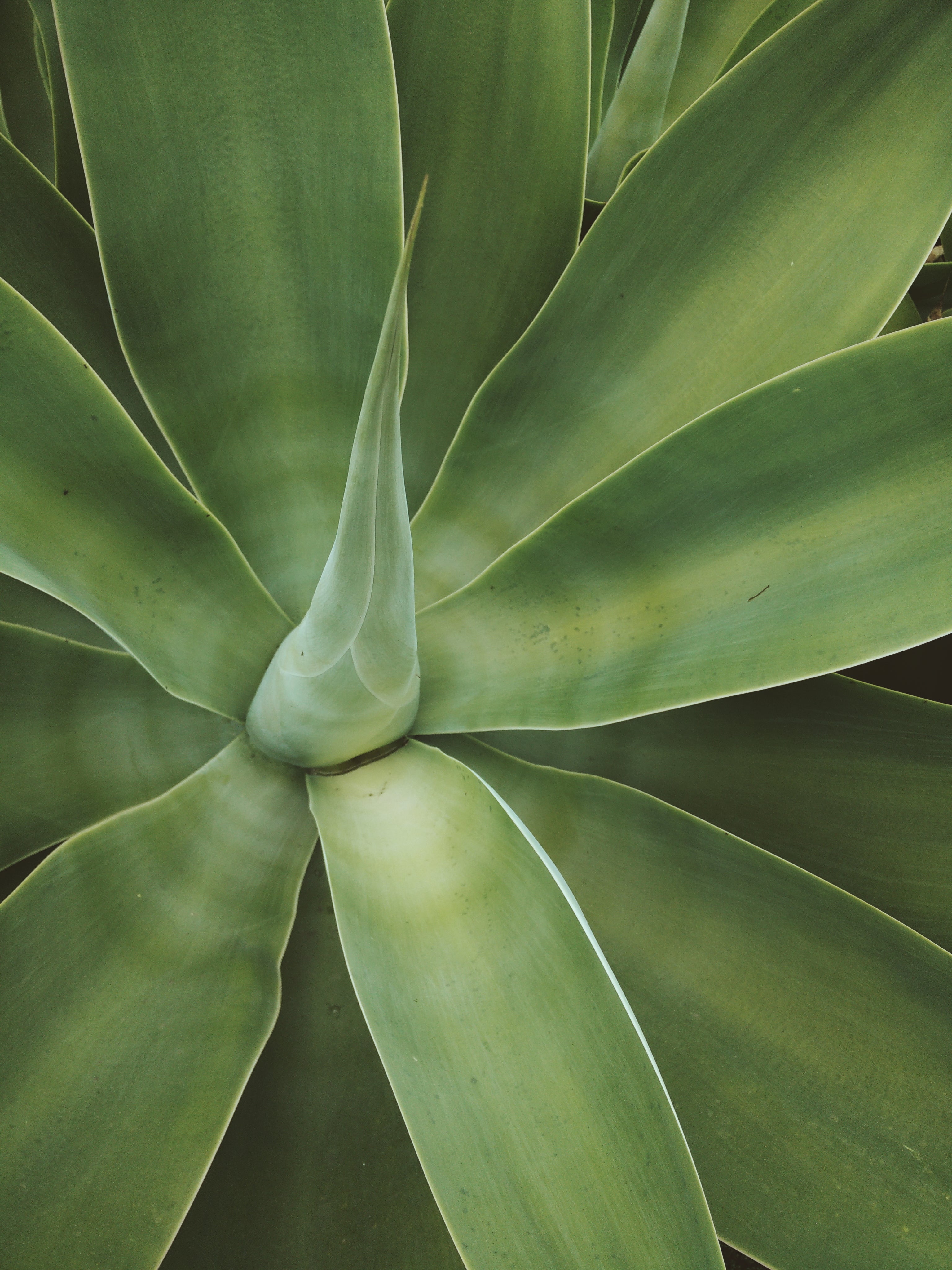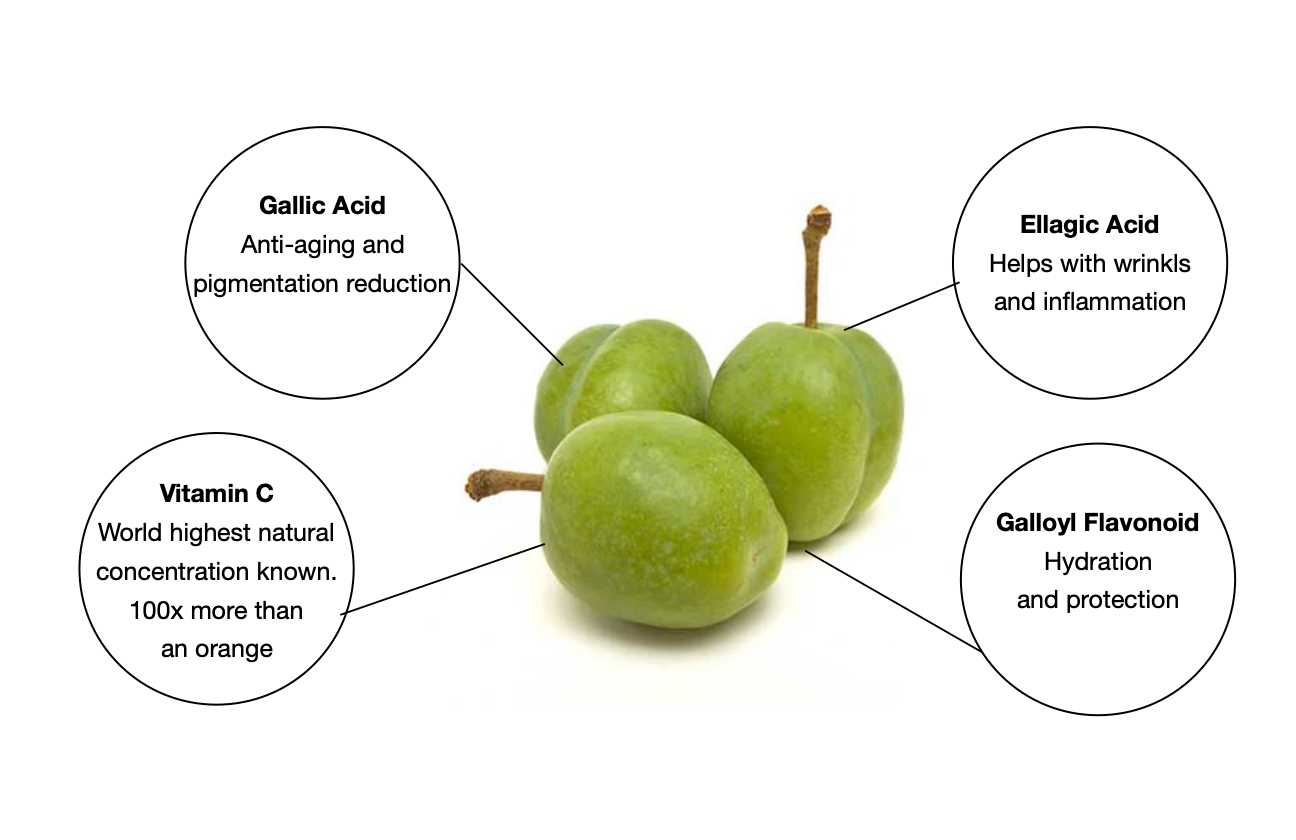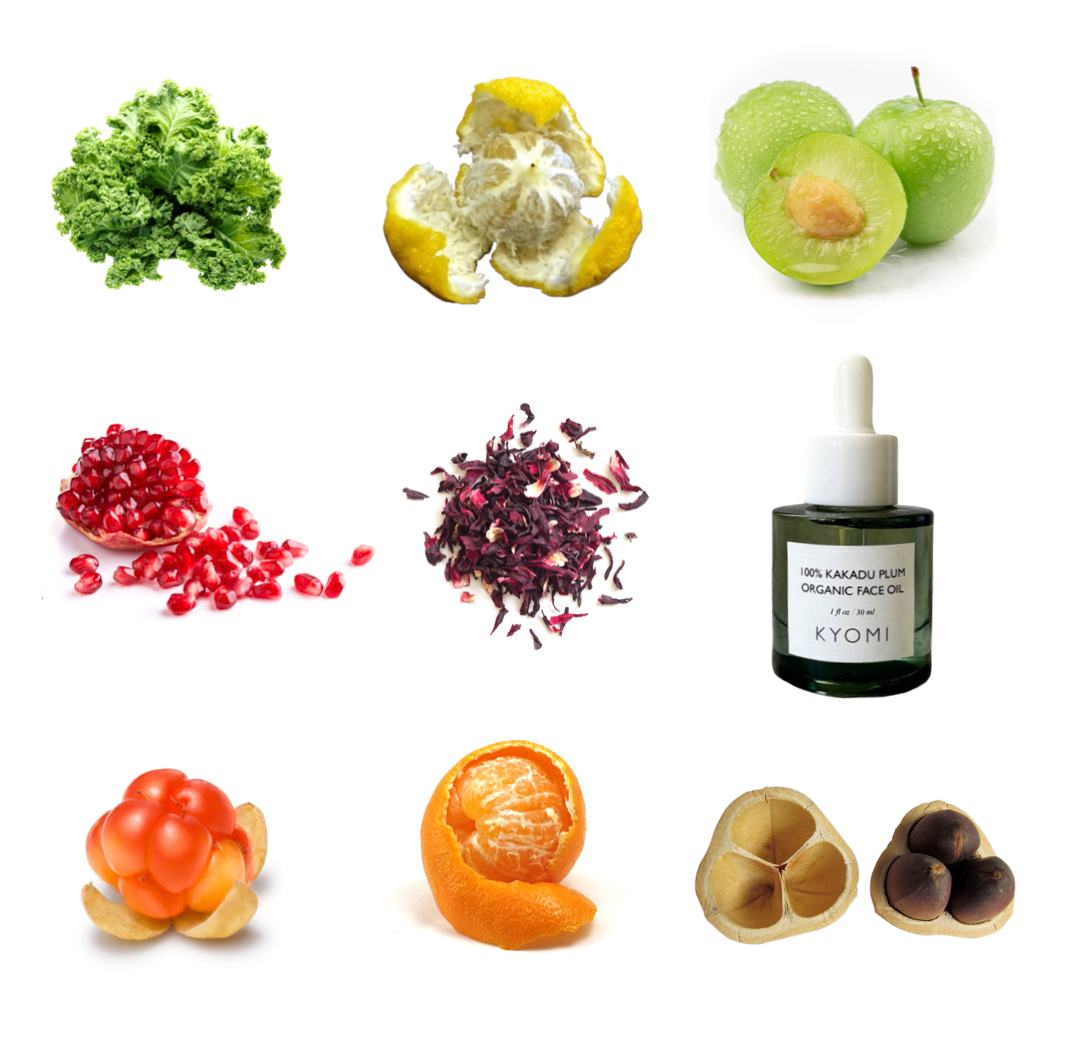Kakadu Plum: The Vitamin C Powerhouse Your Skin Will Love
In the world of natural skincare, few ingredients can match the potency and versatility of Kakadu plum. This small, green fruit—native to Australia’s Northern Territory—packs a big punch. Revered for centuries by Indigenous Australians for its medicinal benefits, Kakadu plum has become a modern skincare favorite for its ability to brighten, hydrate, calm, and protect.
At the heart of Kakadu plum’s skincare power? Its extraordinary vitamin C content—the highest recorded of any natural source on Earth.
What Makes Kakadu Plum a Vitamin C Superstar?
Kakadu plum (Terminalia ferdinandiana) contains up to 5,300 mg of vitamin C per 100 g—that’s over 100 times more than oranges (Netzel et al., 2007). This makes it the most concentrated natural source of this essential antioxidant.
Vitamin C plays several critical roles in skin health:
-
Boosts collagen production for firmer, plumper skin
-
Neutralizes free radicals that accelerate aging
-
Brightens skin and fades dark spots by inhibiting melanin
-
Strengthens the skin barrier and improves healing
Additionally, Kakadu plum contains ellagic acid, a polyphenol with anti-inflammatory and collagen-preserving benefits. Studies show ellagic acid helps reduce UV-induced pigmentation and protects against collagen degradation (Masaki, 2010).
"Topical vitamin C improves signs of aging, fades hyperpigmentation, and protects against environmental damage when used consistently."
– The Journal of Clinical and Aesthetic Dermatology (Al-Niaimi & Chiang, 2017)
Antioxidant Power for Youthful Skin
Kakadu plum is more than just a source of vitamin C—it’s also rich in polyphenolic antioxidants like gallic acid and ellagic acid. These compounds work to reduce oxidative stress, a major contributor to premature aging, inflammation, and dull skin.
In fact, Kakadu plum has been shown to have 13 times more antioxidant capacity than blueberries (Konczak et al., 2009).
These antioxidants help:
-
Prevent fine lines and wrinkles
-
Brighten skin tone
-
Defend against pollution and UV-related damage
-
Reduce pigmentation and inflammation
Together, these properties make Kakadu plum a powerful ally in your anti-aging and brightening routine.
Hydration & Moisture Retention
Healthy skin starts with hydration. Kakadu plum supports moisture retention and reinforces the skin’s natural barrier function, which is essential for maintaining a soft, dewy complexion.
Here's how it helps:
-
Vitamin C supports ceramide production, improving barrier strength
-
Gallic acid has humectant properties, helping the skin retain water
-
Antioxidants prevent water loss by reducing inflammation and barrier breakdown
Well-hydrated skin is more elastic, smoother, and better equipped to defend against external stressors. In dry climates or indoor environments, Kakadu plum-infused products help lock in lasting hydration.
For even greater hydration, Kakadu plum pairs beautifully with ingredients like hyaluronic acid, which attracts moisture, creating a synergistic effect for deep, long-lasting skin plumpness.
Anti-Inflammatory Benefits: Calm, Clearer Skin
Whether you deal with acne, redness, rosacea, or eczema, Kakadu plum’s anti-inflammatory properties can offer real relief.
Key compounds like gallic acid and ellagic acid work to:
-
Reduce redness and swelling
-
Calm irritation caused by environmental stress
-
Soothe acne flare-ups and support post-breakout recovery
-
Restore balance in sensitive or reactive skin types
In a review published in Nutrients (2018), polyphenols like ellagic acid were found to modulate inflammatory responses in skin and improve healing outcomes (Nutrients, 2018).
By using Kakadu plum regularly, you're not just treating irritation—you’re helping to build resilience into your skin’s barrier, preventing future flare-ups.
Why It Works for All Skin Types
One of the most appealing things about Kakadu plum is its compatibility with sensitive, oily, dry, and combination skin. It’s naturally gentle, non-comedogenic, and loaded with skin-soothing benefits. Its lightweight texture and subtle fruit aroma make it a pleasure to use both morning and night.
Whether you're layering it under a sunscreen, mixing it into your favorite moisturizer, or using it as a targeted serum, Kakadu plum adapts to your needs and works well with other ingredients like:
-
Niacinamide (for enhanced brightening)
-
Retinol (to reduce inflammation and support barrier function)
-
Botanical oils (for hydration and antioxidant synergy)
How to Use Kakadu Plum in Your Skincare Routine
Ready to harness the benefits of Kakadu plum? Here's how:
-
Serums: Apply after cleansing and toning. Look for products that feature Kakadu plum extract high on the ingredient list.
-
Face oils: A few drops can deliver a concentrated burst of antioxidants and hydration.
-
Moisturizers: Use daily to maintain hydration and antioxidant defense.
-
Masks: For an intensive brightening or calming treatment.
Pro Tip: Use Kakadu plum in your morning routine to maximize its protection against daily environmental aggressors like UV rays and pollution. Follow with sunscreen to complete your defense.
Final Thoughts: A Superfruit for Super Skin
If you’re looking for a skincare ingredient that does it all—brightens, hydrates, protects, and soothes—look no further than Kakadu plum. This small Australian fruit offers big benefits, supported by both Indigenous wisdom and modern clinical research.
Kyomi Skin celebrates this botanical marvel in its clean, plant-based skincare formulas. Whether your goal is radiance, resilience, or repair, Kakadu plum is a natural way to upgrade your routine—and your skin.
References
-
Netzel, M. et al. (2007). Native Australian fruits: antioxidant capacity and phenolic content. Food Chemistry. https://pubmed.ncbi.nlm.nih.gov/17595107/
-
Masaki, H. (2010). Role of antioxidants in the skin: Anti-aging effects. Journal of Dermatological Science.https://pubmed.ncbi.nlm.nih.gov/20884471/
-
Konczak, I. et al. (2009). Health benefits of Kakadu plum. CSIRO Australia. https://www.researchgate.net/publication/228366206
-
Al-Niaimi, F., & Chiang, N. (2017). Topical vitamin C in skin care. The Journal of Clinical and Aesthetic Dermatology. https://www.ncbi.nlm.nih.gov/pmc/articles/PMC5605218/
-
Nutrients. (2018). Polyphenols and Skin Inflammation. https://www.ncbi.nlm.nih.gov/pmc/articles/PMC6163914/












